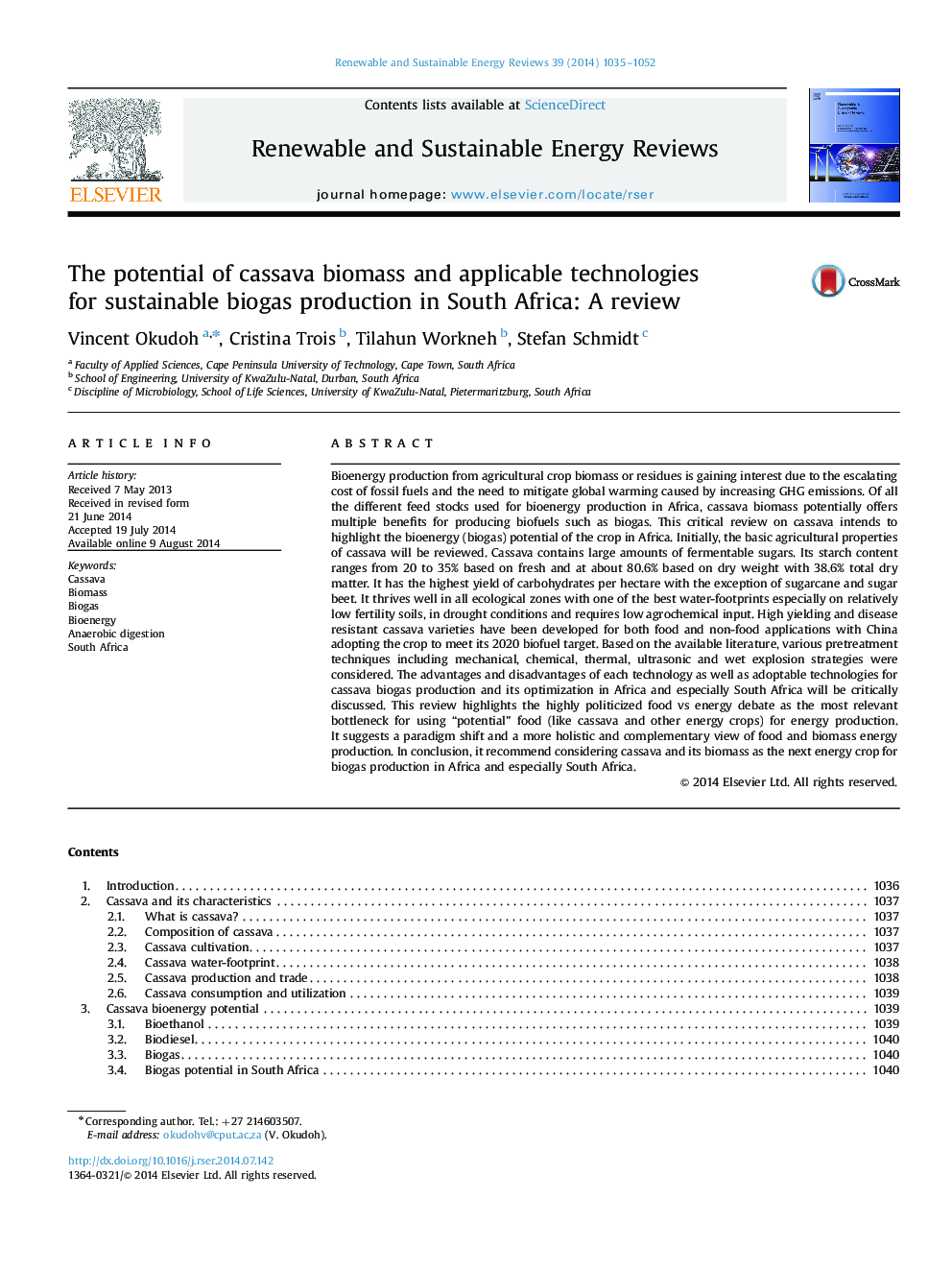| کد مقاله | کد نشریه | سال انتشار | مقاله انگلیسی | نسخه تمام متن |
|---|---|---|---|---|
| 8119284 | 1522346 | 2014 | 18 صفحه PDF | دانلود رایگان |
عنوان انگلیسی مقاله ISI
The potential of cassava biomass and applicable technologies for sustainable biogas production in South Africa: A review
ترجمه فارسی عنوان
پتانسیل بیوماس مگس و فن آوری های قابل استفاده برای تولید بیولوژیکی پایدار در آفریقای جنوبی: بررسی
دانلود مقاله + سفارش ترجمه
دانلود مقاله ISI انگلیسی
رایگان برای ایرانیان
کلمات کلیدی
کاساوا زیست توده، بیوگاز، بیو انرژی، هضم بی هوازی آفریقای جنوبی،
موضوعات مرتبط
مهندسی و علوم پایه
مهندسی انرژی
انرژی های تجدید پذیر، توسعه پایدار و محیط زیست
چکیده انگلیسی
Bioenergy production from agricultural crop biomass or residues is gaining interest due to the escalating cost of fossil fuels and the need to mitigate global warming caused by increasing GHG emissions. Of all the different feed stocks used for bioenergy production in Africa, cassava biomass potentially offers multiple benefits for producing biofuels such as biogas. This critical review on cassava intends to highlight the bioenergy (biogas) potential of the crop in Africa. Initially, the basic agricultural properties of cassava will be reviewed. Cassava contains large amounts of fermentable sugars. Its starch content ranges from 20 to 35% based on fresh and at about 80.6% based on dry weight with 38.6% total dry matter. It has the highest yield of carbohydrates per hectare with the exception of sugarcane and sugar beet. It thrives well in all ecological zones with one of the best water-footprints especially on relatively low fertility soils, in drought conditions and requires low agrochemical input. High yielding and disease resistant cassava varieties have been developed for both food and non-food applications with China adopting the crop to meet its 2020 biofuel target. Based on the available literature, various pretreatment techniques including mechanical, chemical, thermal, ultrasonic and wet explosion strategies were considered. The advantages and disadvantages of each technology as well as adoptable technologies for cassava biogas production and its optimization in Africa and especially South Africa will be critically discussed. This review highlights the highly politicized food vs energy debate as the most relevant bottleneck for using “potential” food (like cassava and other energy crops) for energy production. It suggests a paradigm shift and a more holistic and complementary view of food and biomass energy production. In conclusion, it recommend considering cassava and its biomass as the next energy crop for biogas production in Africa and especially South Africa.
ناشر
Database: Elsevier - ScienceDirect (ساینس دایرکت)
Journal: Renewable and Sustainable Energy Reviews - Volume 39, November 2014, Pages 1035-1052
Journal: Renewable and Sustainable Energy Reviews - Volume 39, November 2014, Pages 1035-1052
نویسندگان
Vincent Okudoh, Cristina Trois, Tilahun Workneh, Stefan Schmidt,
